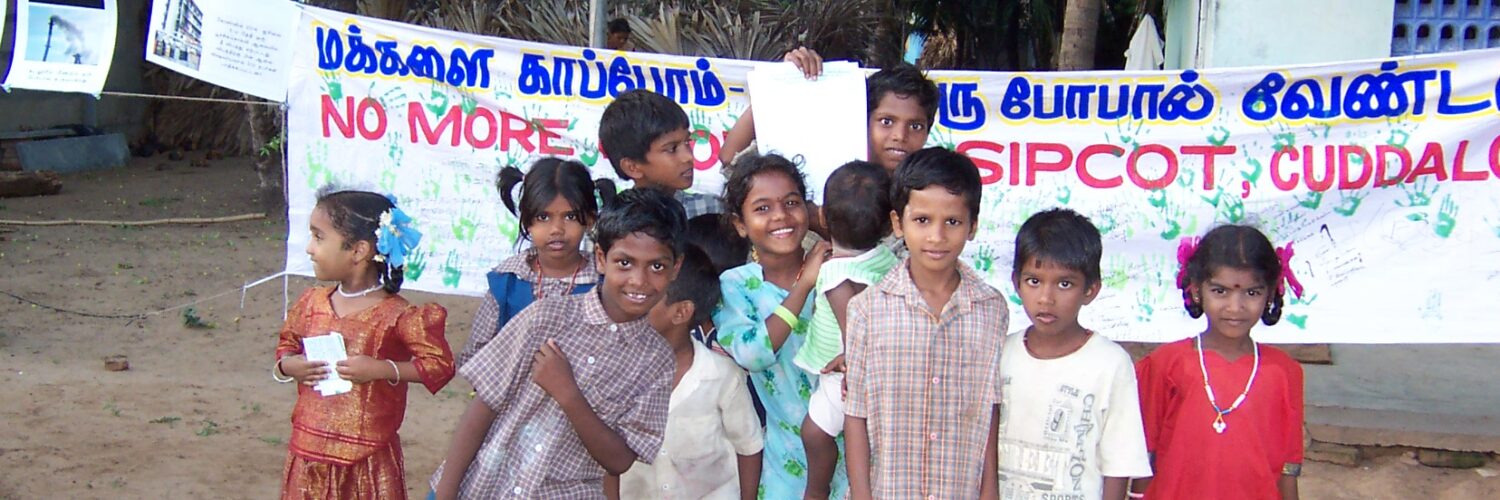New Kerala
16 December, 2005
Chennai: As many as 35 environmental health and justice organisations from world-over have expressed their opposition to the proposed Chemplast PVC plant in Cuddalore.
The groups have sent a letter to the Tamil Nadu Pollution Control Board, urging it to reject the proposal in view of “health and environmental threats,” posed by the PVC plant and by PVC itself, a release from the Community Environmental Monitoring here said today.
The factory which was twice-rejected got approval from the State and Central Governments “despite serious irregularities”. It was set to come up in the SIPCOT Industrial Estate in Cuddalore, an area declared as Global Toxic Hotspot due to the high levels of pollution.
PVC manufacturing facilities impacted workers and fenceline neighbours, polluted the air, contaminated drinking water supplies, and even wiped entire neighbourhoods off the map, observed activist Lois Gibbs, who led a community effort to relocate hundreds of families away from the infamous Love Canal toxic waste site, and who went on to found the Centre for Health, Environment and Justice.
The organisations, in the release, cited examples to contend that the PVC project flouted environmental norms. One such example was the discovery of vinyl chloride in wells nearby a PVC plant in Texas, in the US, which was forced to spend one million dollar to clean up the contaminated groundwater. The same company was fined in 1991 for over three million USD for hazardous waste violations related to ground-water contamination.
Vinyl chloride was a “known human carcinogen” that affected the central nervous system and damaged the liver, the release said.
Besides cancer, workers and residents were vulnerable to a range of ailments associated with vinyl chloride exposure, including damage to the liver, lungs and reproductive system.
There appeared to be “no safe level” of exposure to vinyl chloride, as it was considered to be “genotoxic”, meaning it caused irreversible damage to the DNA. Any exposure increased the risk of developing cancer, a birth defect or a genetic disorder, the release added.
